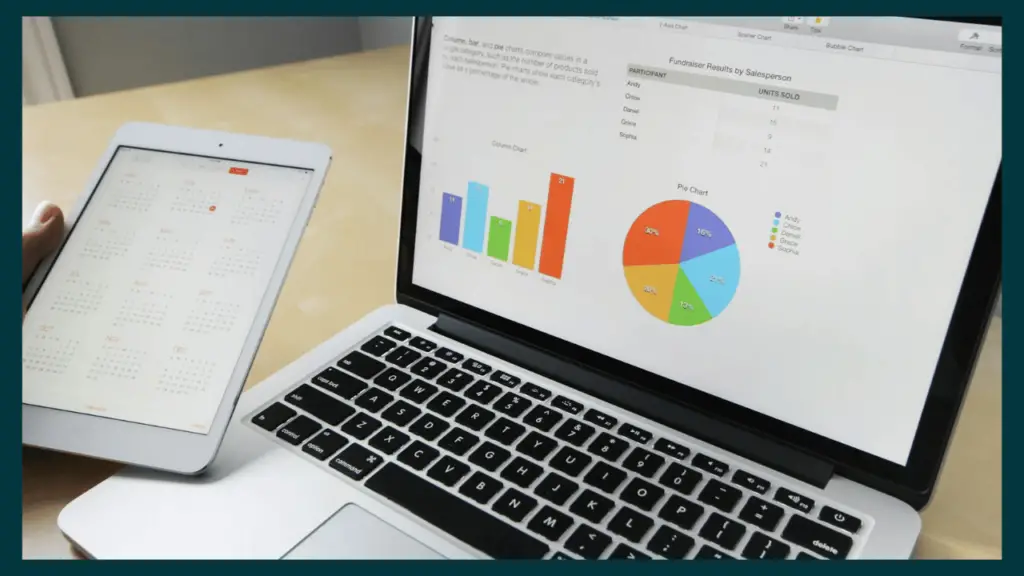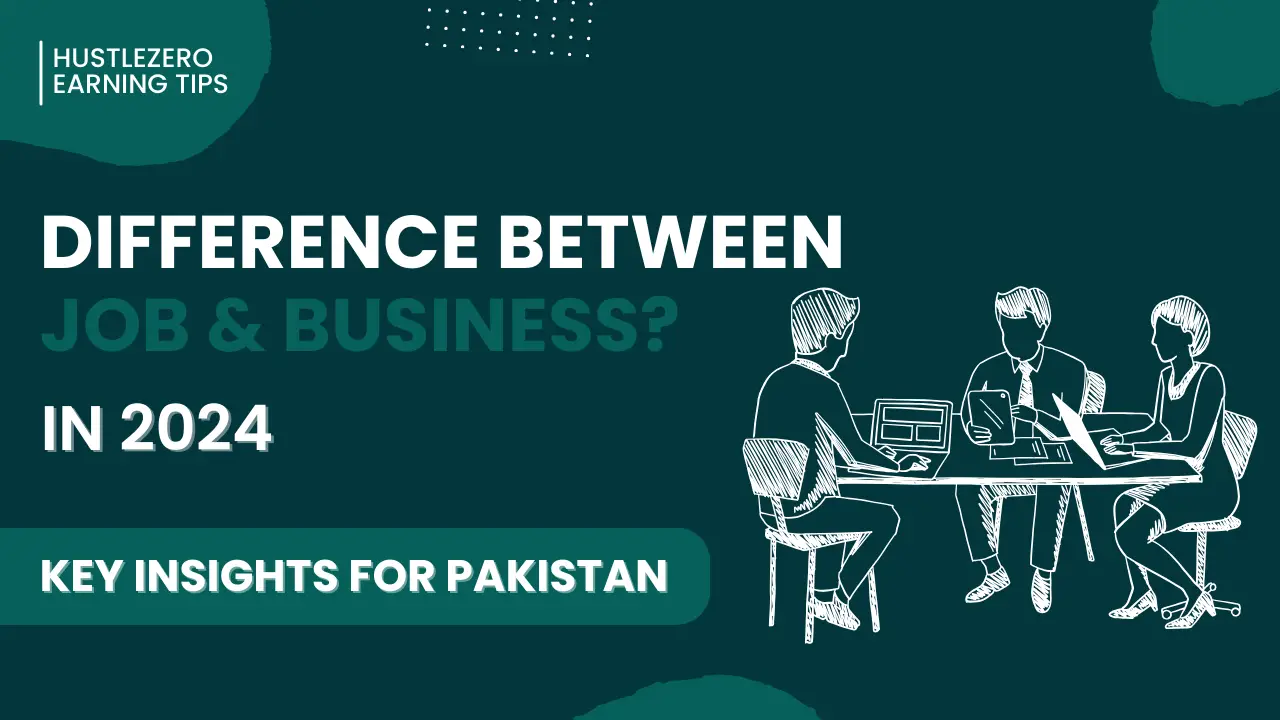Choosing between a job and a business is a pivotal decision for many Pakistanis. Each path offers unique opportunities and challenges, shaping one’s professional and personal life. Understanding what is the difference between a job and a business can help you make an informed decision that aligns with your goals and lifestyle. This comprehensive guide explores these differences in depth, highlighting key factors such as financial stability, growth potential, and work-life balance.
Table of Contents
Understanding the Core Definitions
A job is typically defined as a position of regular employment where one works for an organization or individual in exchange for a salary or wage. Jobs often come with structured work hours, defined roles, and responsibilities, and a set career path.
On the other hand, a business involves setting up and managing an enterprise to earn profits by providing goods or services. Business owners assume greater risk but also enjoy more control over their work and potential for higher financial rewards. They are responsible for strategic decisions, operations, and often, the welfare of their employees.
| Factor | Job | Business |
| Financial Stability | Steady income, benefits | Variable income, initial investment |
| Growth Potential | Limited, career ladder | Unlimited, entrepreneurial |
| Work-Life Balance | More predictable hours | Less predictable hours (initially) |
| Control and Decision-Making | Limited, follow instructions | Full control, strategic decisions |
| Risk & Responsibility | Lower risk | Higher risk, full responsibility |
| Initial Investment | Minimal | Can be significant |
| Job Satisfaction | Stability, benefits, community | Fulfillment of building something, impact |
| Market Dynamics | Stable jobs in some sectors | Requires constant adaptation |
| Social & Economic Impact | Stable employment, tax revenue | Job creation, innovation, economic growth |
| Educational & Skill Requirements | Specific qualifications, degrees | ions, degrees Diverse skillset, experience |
Financial Stability and Security
One of the most significant differences between a job and a business is financial stability. In a job, employees receive a fixed salary, providing a predictable income stream. This financial predictability is particularly appealing in Pakistan, where economic fluctuations can be challenging. Additionally, jobs often come with benefits such as health insurance, retirement plans, and paid leave, adding to the financial security.

Conversely, running a business in Pakistan involves variable income. Earnings can fluctuate based on market conditions, customer demand, and business expenses. While successful businesses can yield high profits, the initial phase may require substantial financial investment without guaranteed returns. Entrepreneurs must be prepared for financial instability, especially during the startup phase.
Growth Potential and Career Advancement
Jobs offer a relatively clear career progression. Employees can climb the corporate ladder based on performance, experience, and educational qualifications. In Pakistan, many professionals pursue further education or certifications to enhance their career prospects within their chosen fields. For example, doctors, engineers, and accountants often follow this route, gaining specialized skills and moving into higher-paying roles.
In contrast, business owners have unlimited growth potential. The success of a business depends largely on the owner’s vision, innovation, and ability to adapt to market changes. Entrepreneurs can expand their businesses, enter new markets, and diversify their offerings. However, this growth is contingent on the ability to manage risks effectively and make strategic decisions.
Work-Life Balance
Work-life balance is another crucial factor when considering what is the difference between a job and a business. Jobs typically offer more predictable hours, allowing employees to maintain a steady work-life balance. Many jobs in Pakistan adhere to a standard 9-to-5 schedule, leaving evenings and weekends free for personal activities.

Running a business often requires longer and more irregular hours, especially in the initial stages. Entrepreneurs may work late nights and weekends to establish and grow their business. This commitment can strain personal relationships and lead to burnout if not managed properly. However, successful business owners can eventually delegate responsibilities and achieve a flexible schedule.
Control and Decision-Making
Control over work and decision-making processes marks another stark difference. Employees in a job typically follow instructions from supervisors and adhere to company policies. While there is room for creativity and innovation, major decisions are usually made by higher management.
Business owners, however, have full control over their operations. They make strategic decisions, manage resources, and drive the direction of the business. This autonomy allows for creativity and innovation but also brings the responsibility of making critical decisions that impact the business’s success.
Risk and Responsibility
The level of risk and responsibility is significantly different between a job and a business. Employees face lower risk since they receive a steady income regardless of the company’s performance. Their primary responsibility is to perform their assigned duties effectively.

Business owners, in contrast, bear the full risk of their enterprise. They are responsible for securing funding, managing cash flow, and ensuring the business complies with legal and regulatory requirements. The financial and operational risks are higher, but so are the potential rewards.
Initial Investment and Overheads
Starting a business typically requires significant initial investment and ongoing operational costs. This includes expenses for premises, equipment, inventory, marketing, and salaries for any employees. In Pakistan, securing funding can be a challenge, with entrepreneurs often relying on personal savings, loans, or investor funding.
In contrast, securing a job usually involves minimal financial investment. Costs are generally limited to education and training required for the position. Once employed, the primary focus is on job performance rather than managing overhead costs.
Job Satisfaction and Personal Fulfillment
Job satisfaction and personal fulfillment vary greatly between a job and a business. Employees may find satisfaction in career stability, benefits, and the opportunity to specialize in their field. Jobs can also offer a sense of community and belonging within an organization.

Business owners often find fulfillment in building something from the ground up, creating jobs, and contributing to the economy. The sense of accomplishment from running a successful business can be immensely rewarding. However, the stress of managing a business can also impact overall job satisfaction.
Market Dynamics and Adaptability
In the ever-changing market dynamics of Pakistan, adaptability is key. Jobs in stable industries like healthcare, education, and government offer more security against market fluctuations. These sectors often provide steady employment opportunities even during economic downturns.
Businesses must continuously adapt to changing market conditions, customer preferences, and technological advancements. Entrepreneurs who can pivot and innovate are more likely to succeed in the long term. This adaptability requires a keen understanding of the market and the ability to anticipate and respond to changes swiftly.
Social and Economic Impact
Both jobs and businesses play crucial roles in Pakistan’s socio-economic landscape. Jobs provide stable employment, contributing to the livelihood of individuals and their families. They also support economic stability by offering consistent tax revenues and consumer spending.

Businesses drive economic growth by creating jobs, fostering innovation, and generating wealth. Successful entrepreneurs contribute to the development of new industries and markets, enhancing the overall economic health of the country. By taking risks and investing in new ventures, business owners are pivotal in pushing the economy forward.
Cultural Perspectives
In Pakistan, cultural perspectives on jobs and businesses are also influential. Traditionally, jobs in government sectors or multinational companies are highly valued for their stability and prestige. Many families encourage their children to pursue professional careers with secure job prospects.
However, the entrepreneurial spirit is gaining momentum, especially among the younger generation. With increasing access to education and resources, more Pakistanis are exploring business opportunities, seeking independence, and aiming for higher financial rewards. This cultural shift is gradually changing perceptions and encouraging more entrepreneurial ventures.
Navigating Challenges and Opportunities
Whether choosing a job or starting a business, individuals must navigate various challenges and opportunities. For job seekers, competition for desirable positions can be intense, requiring continuous skill development and networking. The rapidly changing job market demands adaptability and lifelong learning.

Entrepreneurs face the challenge of establishing a market presence, securing funding, and managing operational risks. However, they also have the opportunity to innovate, disrupt traditional markets, and achieve substantial financial success. The ability to identify and capitalize on opportunities is crucial for business success.
Legal and Regulatory Environment
Understanding the legal and regulatory environment is essential for both job seekers and business owners in Pakistan. Employees need to be aware of labor laws, employment rights, and workplace safety regulations. Ensuring compliance with these laws protects employees and promotes fair working conditions.
Business owners must navigate a complex regulatory landscape, including business registration, tax obligations, and industry-specific regulations. Compliance with legal requirements is critical to avoid penalties and ensure smooth operations. Entrepreneurs often seek legal advice to understand their obligations and mitigate risks.
Technology and Innovation
The role of technology and innovation cannot be overlooked when discussing what is the difference between a job and a business. In the job market, technological advancements have transformed various industries, creating new job opportunities and altering traditional roles. Professionals with technological skills are in high demand across sectors.

For businesses, leveraging technology is crucial for growth and competitiveness. From e-commerce platforms to digital marketing, technology enables businesses to reach a broader audience and operate more efficiently. Innovative solutions can streamline operations, enhance customer experiences, and drive business success.
Educational and Skill Requirements
The educational and skill requirements for jobs and businesses differ significantly. Jobs often require specific qualifications, degrees, and certifications. For instance, a career in engineering, medicine, or finance necessitates formal education and professional training. Continuous learning and skill development are essential for career advancement. In contrast, starting a business may not require formal qualifications, but it demands a diverse skill set. Entrepreneurs need to understand finance, marketing, operations, and customer service. Practical experience, problem-solving abilities, and a strong network are invaluable assets for business success.
Conclusion
Choosing between a job and a business is a decision that requires careful consideration of various factors, including financial stability, growth potential, work-life balance, and personal fulfillment. In Pakistan, this choice is influenced by cultural values, economic conditions, and individual aspirations. Jobs offer predictability, security, and structured career progression, making them appealing for those seeking stability and a defined path. Conversely, starting a business offers the potential for higher financial rewards, autonomy, and the opportunity to innovate, though it comes with greater risks and responsibilities.

Ultimately, the right choice depends on your personal goals, risk tolerance, and lifestyle preferences. Whether you opt for a stable job or the dynamic world of entrepreneurship, understanding these key differences will help you make an informed decision that aligns with your ambitions and circumstances. Remember, both paths contribute significantly to the socio-economic fabric of Pakistan, and each has its unique rewards and challenges. As you weigh your options, consider what will bring you the most satisfaction and fulfillment in the long run.
Join our website HUSTLEZERO for more good ideas on earning, let us know if there are any questions in the comment section below.
Read our article on the best online businesses in Pakistan without investment.
FAQ’s
-
What are the main advantages of having a job?
Having a job offers financial stability, predictable income, and benefits such as health insurance and retirement plans. Jobs also provide opportunities for career advancement and professional development.
-
What are the risks associated with starting a business?
Starting a business involves financial risk, variable income, and the potential for failure. Entrepreneurs must invest time, money, and resources without guaranteed returns, and they face the responsibility of managing all aspects of the business.
-
Can a job offer the same growth potential as a business?
